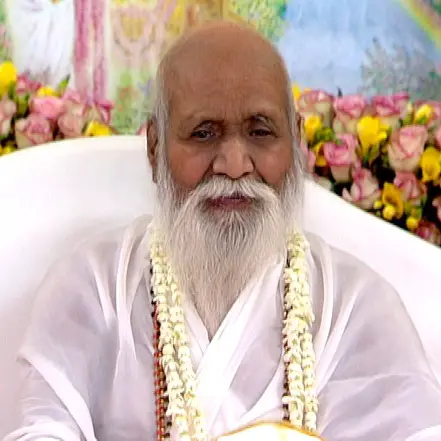In the quest for personal growth, spiritual development, and the fulfillment of desires, mantras have long been a powerful tool in various cultural and spiritual traditions. The practice of reciting wish fulfilling mantras, specific phrases or sounds believed to have a profound impact on the individual’s life and the world around them, has been a part of human spiritual practices for centuries.
This article delves into the mystical world of these mantras, exploring their origins, meanings, and how they are used across different cultures to bring about change, healing, and fulfillment of wishes. Whether you are a seasoned practitioner or a curious beginner, this guide offers insights into the power of mantras and how they can be integrated into daily life for personal transformation and wellbeing.

Table of Contents
What are Wish Fulfilling Mantras?
Wish fulfilling mantras are a special category of mantras that are believed to have the power to make specific desires and dreams come true. Rooted deeply in various spiritual and cultural traditions, these mantras are more than just a series of words; they are seen as vibrations that resonate with the universe’s energy.
The concept of a wish fulfilling mantra is not limited to any one religion or belief system. It spans across Hinduism, Buddhism, and many other spiritual practices around the world. In Hinduism, for instance, certain mantras are recited with the belief that they will bring about prosperity, health, or success. In Buddhism, mantras are often chanted to cultivate compassion, wisdom, and to fulfill spiritual aspirations.
These mantras work on the principle of sound energy. According to this belief, every sound has a particular vibration, and when vocalized with intention and concentration, these vibrations can influence the world around us, aligning circumstances to bring about a desired outcome. It’s a practice that blends the power of sound, the focus of the mind, and the energy of desire to manifest one’s goals.
Wish fulfilling mantras are not just about reciting words; they require a deep sense of faith, focus, and regular practice. The power of these mantras is believed to be enhanced by the purity of intention and the consistency of practice. Chanting them is often considered a meditative practice, helping individuals to center their mind and spirit on their deepest desires and aspirations.
The Power of Mantras in Fulfilling Wishes
The power of mantras in fulfilling wishes can be understood through various perspectives, including their psychological and physiological impacts.
Mantras, being rhythmic repetitions of words, phrases, or syllables, have been found to have a significant impact on mental and emotional well-being. Practitioners often report a sense of calm, happiness, and emotional upliftment following mantra-based meditation. This is not just a subjective experience; scientific research has begun to support these claims. Studies have shown that mantra meditation can effectively reduce stress, anxiety, and even symptoms of depression. This positive impact on mental health is attributed to the fact that mantras help in clearing the mind and stopping the normal train of thought, creating a more peaceful mental state.
Furthermore, the practice of mantra chanting is not just a mechanical repetition of words; it is deeply connected with intention and faith. For instance, in Buddhist traditions, chanting mantras is considered an act of respectful address to deities, and it is believed that doing so with the right intention can bring protection and fulfillment of wishes. The effectiveness of mantras is also linked to their ability to connect practitioners with their deeper selves and the divine, thus creating a sense of harmony and alignment with their desires and aspirations.
Scientifically, the benefits of mantra meditation extend beyond mental health. For example, a narrative review published in the International Journal of Yoga highlighted the health benefits of practicing mantra meditation, covering areas such as stress, anxiety, hypertension, and immunity. This review underscores the potential of mantra meditation in contributing to overall health and well-being.
Top Wish Fulfilling Mantras
Wish-fulfilling mantras span across various traditions and serve different purposes. Here is a segmented overview of some renowned mantras:
Hindu Mantras
- Gayatri Mantra: A powerful mantra from the Rigveda, dedicated to the deity Savitr. It is chanted for enlightenment and well-being.
- Mahamrityunjaya Mantra: Originating from the Rigveda and dedicated to Lord Shiva, this mantra is chanted for healing, longevity, and protection.
- Sri Suktam: A hymn from the Rig Veda dedicated to Goddess Lakshmi. It’s commonly chanted to attract wealth and prosperity.
- Kleem Mantra: A bija (seed) mantra, known for attracting relationships, friendships, and material wealth.
Buddhist Mantras
- Om Mani Padme Hum: The most famous Tibetan Buddhist mantra, associated with the Bodhisattva of compassion, Avalokiteshvara. It is used for invoking compassion and mind purification.
- Green Tara Mantra: “Om Tare Tuttare Ture Soha” is dedicated to the Green Tara and is believed to provide quick protection and aid.
Universal Mantras
- Soham Mantra: Translated as “I am He/That,” this mantra is associated with the universal consciousness and is used for deep meditation and aligning with the universe.
- Hare Krishna Mantra: A 16-word Vaishnava mantra that aims to bring about a higher state of consciousness and personal transformation. It is used for spiritual clarity and peace.
Regular Mantras
Apart from the traditional Hindu and Buddhist mantras, there are regular mantras which are more generic in nature and can be used by anyone, regardless of their religious or spiritual background. These mantras are often focused on general well-being, positivity, and personal empowerment.
Examples of Regular Mantras
- “I am capable and strong”: This mantra reinforces self-confidence and personal strength, helping individuals to feel empowered in their daily activities.
- “Peace begins with me”: A simple yet profound mantra, it helps in cultivating inner peace and spreading that tranquility to the world around.
- “I choose to see the good in others”: This mantra fosters a positive outlook towards others, encouraging compassion and understanding in interpersonal relationships.
- “Every day in every way, I am getting better and better”: Popularized by French psychologist Émile Coué, this mantra is used for self-improvement and positive thinking.
- “I am open to all that life offers me”: This mantra helps in embracing life’s experiences, both good and challenging, with an open heart and mind.
- “I release all doubts and embrace trust”: Useful for overcoming fears and anxieties, this mantra aids in cultivating a mindset of trust and positivity.
Potential Challenges and Solutions in Practicing Wish Fulfilling Mantras
Practicing mantras, especially with the aim of fulfilling wishes, can come with its own set of challenges. However, understanding these challenges and knowing how to navigate them can make the practice more effective and fulfilling.
Challenges
- Consistency and Discipline: One of the biggest challenges is maintaining a regular practice. Mantra chanting requires consistency to be effective.
- Doubt and Skepticism: Many individuals struggle with doubt and skepticism about the efficacy of mantras, which can hinder the process.
- Distractions and Lack of Focus: The modern world is full of distractions. Maintaining focus during mantra practice can be difficult for many.
- Understanding the Meaning: Sometimes, not understanding the language or the meaning of the mantra can create a barrier to connecting deeply with the practice.
- Expecting Quick Results: Some practitioners may become disheartened if they do not see immediate results from their mantra chanting.
Solutions
- Creating a Routine: Establish a regular time and place for mantra practice. Consistency helps in forming a habit and enhances the effectiveness of the practice.
- Educating Oneself: Understanding the history, meaning, and significance of the mantra can deepen one’s connection to the practice and reduce skepticism.
- Mindfulness Techniques: Incorporating mindfulness and concentration techniques can help in minimizing distractions and maintaining focus during chanting.
- Patience and Persistence: It’s important to approach mantra practice with patience. Recognize that the benefits may unfold gradually.
- Seeking Guidance: If in doubt, seeking guidance from a knowledgeable teacher or a practitioner can provide clarity and improve practice.
- Using Technology Wisely: Utilize apps and recordings to stay consistent and focused, especially for beginners who might need support in maintaining rhythm or learning the pronunciation.
- Setting Realistic Expectations: Understand that mantras are a tool for spiritual growth and transformation, and their impact can be subtle and gradual.
By addressing these challenges with practical solutions, individuals can enhance their experience with mantra chanting, making it a more enriching and fulfilling practice. Remember, the journey with mantras is as important as the de
FAQs on Wish Fulfilling Mantras
Can anyone practice these mantras, regardless of their religious background?
Yes, most mantras can be practiced by anyone, regardless of religious or cultural background. However, understanding their meaning and respecting their origin enhances the practice’s effectiveness and depth.
See Related Posts

Mantras to Live By

Best Mantras for Exams

Transcendental Meditation Mantras

Mental Wellness Mantras

Tara Mantra Benefits

Numerology and Mantras

Best Morning Mantras

Love Mantras

TV Sitcom Mantras

